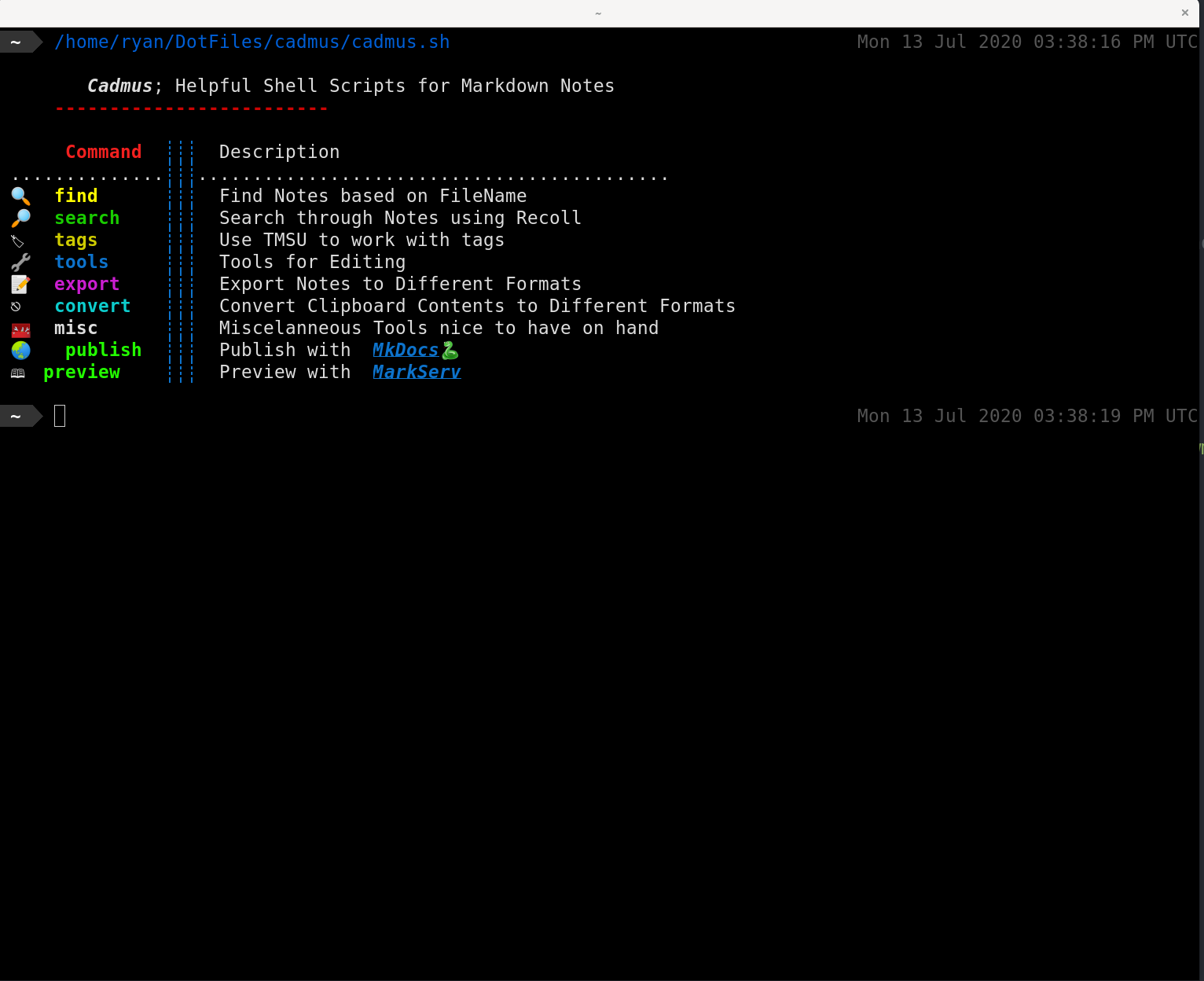cadmus
Shell Scripts to Facilitate Effective Note Taking
Introduction
Essentially I used to have a dozen shell scripts in ~/bin that I use to capture notes,
this is an attempt to wrap them into a single script and then have aliases to make them quick to access.
Philosophy
- Be a Front end to tie together different scripts and tools
- Don't replicate work other people have done.
- Plain Text, Open Source.
- Be Modular
- Pipe in input, output goes to STDOUT
- Leave Aliases and piping to the user
Installation
To install, satisfy the dependencies and do something like this:
cd ~/DotFiles
if [[ -d ".git" ]]; then
echo "Adding Submodule";
git submodule add https://github.com/RyanGreenup/cadmus
else echo "Cloning Repository";
git clone https://github.com/RyanGreenup/cadmus
fi
stow -t $HOME -S cadmus
| ⚠️ WARNING |
|---|
| Stow is currently broken on Arch If you are using Stow 2.3.1-2 downgrade |
Downgrade with: sudo pacman -U https://archive.archlinux.org/packages/s/stow/stow-2.2.2-5-any.pkg.tar.xz
Usage
It's all Menu driven so just follow the diagram to do what you need.
Assumptions
It is assumed that:
- notes are:
- Markdown files with a
.mdextension - Underneath
~/Notes - Recoll updates it's index on the fly
~/Noteswill need to be indexed by Recoll so the results will show up.
- Markdown files with a
- You're going to use Kitty
- You could either change the source or use anoter terminal that supports
calling functions with
--, e.g.kitty -- nvim
- You could either change the source or use anoter terminal that supports
calling functions with
- SSD
- I use an SSD and some scripts are pretty inefficient (like
grep | cut | xargs findto avoid creating a variable), I don't know if things like would work on a HDD.
- I use an SSD and some scripts are pretty inefficient (like
- SystemD
- or atleast have
tmpfsmounted at/dev/shm(See the Arch Wiki: tmpfs) 1
- or atleast have
Dependencies
- R
- highlight
- recode
- node
- nvim
- fzf
- code
- sk
- rg
- perl
- stow
- python
- tmsuAUR
- ranger
- mdcatAUR
- xclip
- sd
- fd
- sed
- cut
- grep
- find
- GNU realpath
- Recoll
- MkDocs
- VNote
- Pandoc
Recommended Aliases
TODO
Related
-
From Wikipedia Recent 2.6 Linux kernel builds have started to offer /dev/shm as shared memory in the form of a ramdisk, more specifically as a world-writable directory that is stored in memory with a defined limit in /etc/default/tmpfs. /dev/shm support is completely optional within the kernel config file. ↩︎

